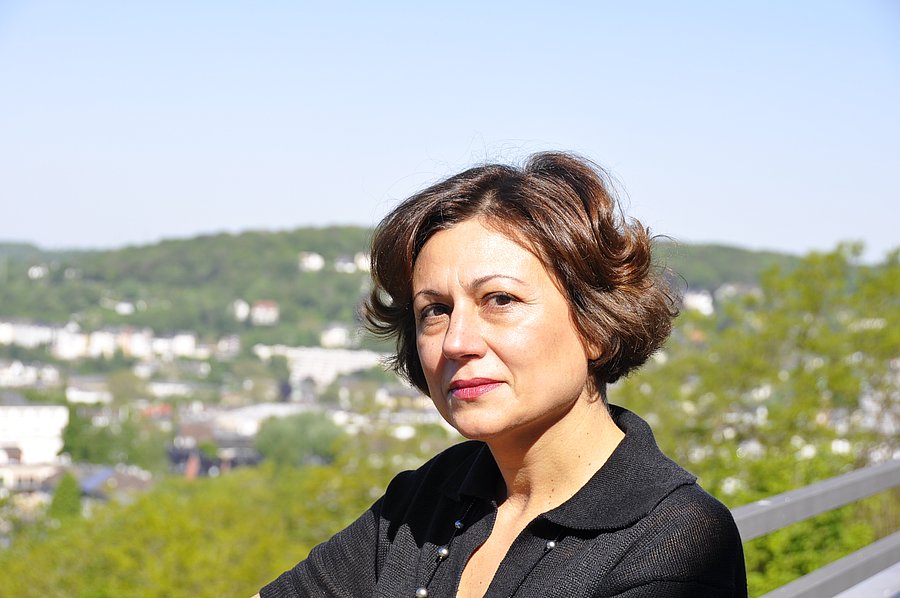
Studium generale
Prof. Dr. Rita Casale / Human and Social Sciences
Photo: UniService Transfer
Overcoming the boundaries of a field of study
Prof. Dr. Rita Casale on a reorientation of Studium generale
Today, Studium generale is the term used to describe all non-compulsory, public courses offered by a university that promote a comprehensive general education. However, this was not always the case. Wuppertal educationalist and philosopher Prof. Dr. Rita Casale has long been concerned with this university offering, its transformative idea, and the social function of the university. "In the history of the university, there hasn't been a phase since the Middle Ages where the Studium generale didn't exist," she says. "In the Middle Ages, it was even compulsory for everyone." Any student who wanted to enter the qualifying faculties of theology, law or medicine at some point had to take the Studium generale first. At least since Wilhelm von Humboldt's founding of the Berlin University in 1809, it has been understood as the study of the dispute of the faculties, following a text by Immanuel Kant (Der Streit der Fakultäten). According to Casale: "Students should be able to understand the relationship between the faculties. The Studium generale should enable one to understand the internal relationship of the faculties."
Back to the Middle Ages
During her research, the scientist noticed that today we are more back to the medieval idea of a Studium generales, because it is again understood more as an orientation aid to prepare for a "proper" degree program. "At Bergische Universität, this is offered in the optional area," she explains, "which means it has an in-depth character, but I'm not entirely happy with that."
Educational offerings for civil society
In cooperation with the Center for Continuing Education under the direction of Prof. Dr. Gabriele Molzberger and with Dr. Catrin Dingler, Casale has developed a format that she summarizes under the label 'The University Goes to Town'. With events in cafés or at the Mirk train station, this offer has also received a great response from civil society, so she knows that there is a need. She would also like to expand this need in cooperation with the university transfer office and develop a concept that combines all these events.
Overcoming the boundaries of a subject
Her own idea of a Studium generales, however, looks different.
"My understanding of it, and I would also like to implement it in Wuppertal, is one that takes place after the subject-specific education. That is, the Studium generale arises from the awareness of the boundary of a subject." When one realizes in one's own subject that one reaches a limit with certain questions, one has to look for collaborations, he said. "That's interdisciplinarity on a whole other level. That would also allow for more cooperation in research," she says determinedly.
Phases in the university's history control the courses offered
In her research, Casale was also able to determine that the Studium generale is oriented toward the times and existing needs by looking at the changing event offerings. "We distinguished four phases of contemporary university history, during which the formats of Studium generale also changed," she explains. The period immediately after World War II until 1964, she says, saw a restoration of the old. There was a direct continuation of the tradition before National Socialism. Then followed the period of expansion and democratization of the universities from 1964 to 1977, during which the important phase of the founding of the comprehensive university also took place. From 1977 to 1993, the mass university was dealt with. Finally, the period after the Bologna reform in 1993 until today deals with the response to the challenges of the mass university, he said. "In these four phases, the events change." This, he said, is partly because of the new topics being covered, but also because of the preeminence of some subjects. One has to understand who was responsible for offering Studium generale in each phase, he said. After 1945, for example, the history of law and also the history of science were reworked and offered differently than before. "Then sociology has been very important," she continues, "and then there's a phase for psychology and economics." In 2022, Casale, in collaboration with colleagues Gabriele Molzberger, Catrin Dingler and Elena Tertel, will write a monograph on this and publish an anthology (Vandenhoeck & Ruprecht | Böhlau), in which one can trace the development once again.
New paths for new topics
The Studium generale continues to unfold and is also geared to current needs. "Today, the natural sciences are the most important topic for the young generation," says the scientist. In her opinion, spaces and formats must be developed for these new topics, in which interdisciplinary discussions are possible. Staff from all faculties should be allowed to contribute their expertise and work together with students and interested representatives of civil society on new formats for the future.
Uwe Blass (conversation from 10.05.2021)
Prof. Dr. Rita Casale studied philosophy and history in Bari, Paris and Freiburg im Breisgau. After professional stations in Frankfurt am Main, Zurich and Fribourg, among others, she came to Bergische Universität in 2009 and teaches General Educational Science/Theory of Education in the Faculty of Human and Social Sciences. She has edited several volumes on pedagogical historiography, on feminist theory and history, and has written extensively on political and pedagogical thought in modernity and on contemporary philosophy.
